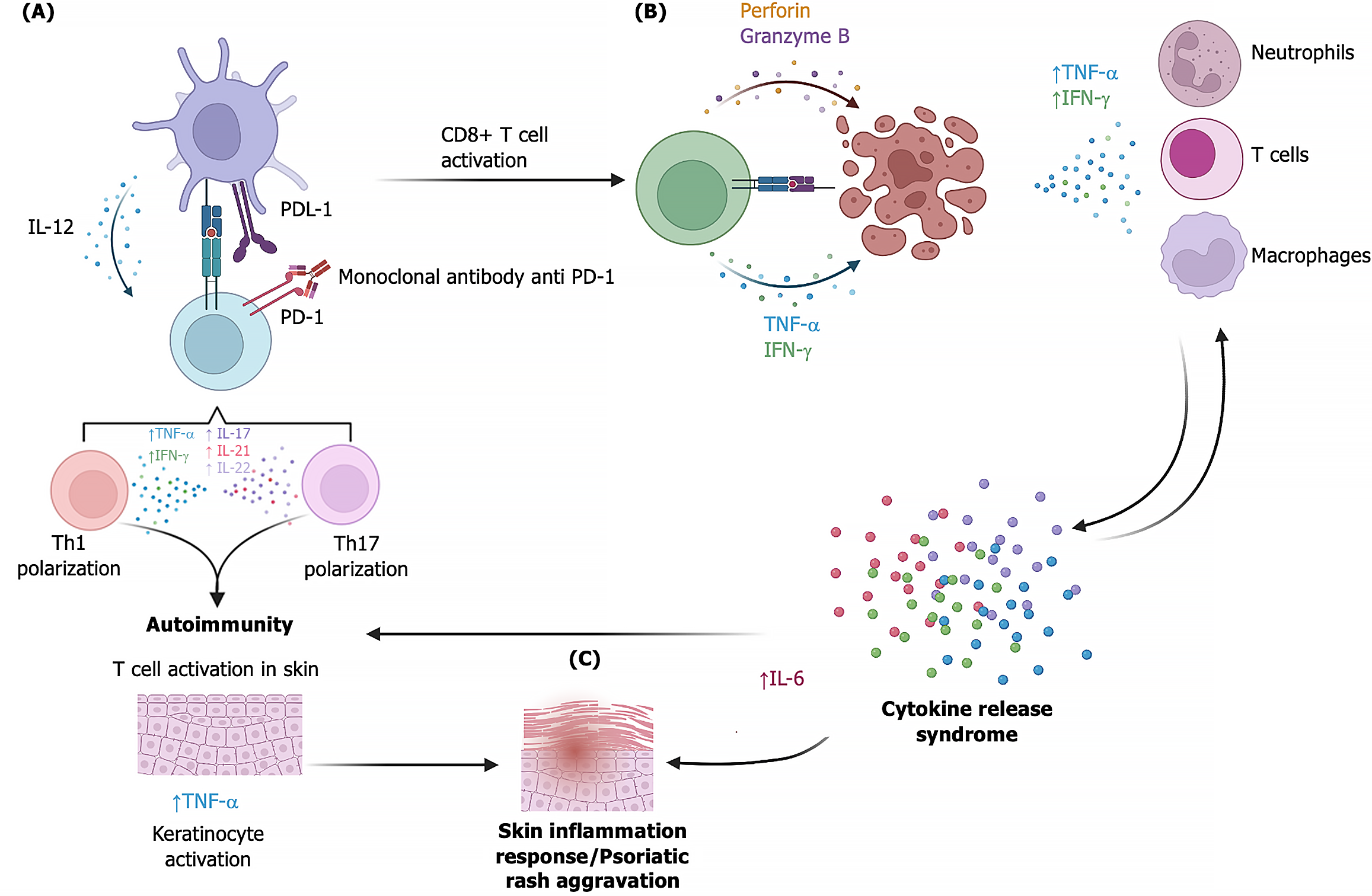©The Author(s) 2024.
World J Clin Cases. Dec 16, 2024; 12(35): 6782-6790
Published online Dec 16, 2024. doi: 10.12998/wjcc.v12.i35.6782
Published online Dec 16, 2024. doi: 10.12998/wjcc.v12.i35.6782
Figure 1 Possible immunologic mechanisms of anti programmed death-1 induced psoriasis.
It has been proposed that programmed death-1 (PD-1) blockade enhances T cell activation, which results in two main events. A: Increased T helper 1/T helper 17 cell differentiation, which may induce autoimmunity; B: Blocking PD-1 increases CD8+ T cell activity and increased antitumor activity, which may trigger cytokine release syndrome, which increases the risk of developing autoimmunity; C: Blocking PD-1 increases CD8+ T cell activity and increased antitumor activity, which may trigger cytokine release syndrome, which increases the risk of developing autoimmunity. Finally, both pathways may induce a skin inflammatory response which promotes psoriatic skin lesions, possibly due to activation of keratinocytes by inflammatory mediators such as interleukin-6, interferon-γ and tumor necrosis factor-α. PDL-1: Programmed cell death ligand; PD-1: Programmed death-1; Th1: T helper 1; IL-6: interleukin-6; TNF-α: Tumor necrosis factor α; IFN-γ: Interferon-γ.
- Citation: Maldonado-García JL, Fragozo A, Pavón L. Cytokine release syndrome induced by anti-programmed death-1 treatment in a psoriasis patient: A dark side of immune checkpoint inhibitors. World J Clin Cases 2024; 12(35): 6782-6790
- URL: https://www.wjgnet.com/2307-8960/full/v12/i35/6782.htm
- DOI: https://dx.doi.org/10.12998/wjcc.v12.i35.6782













